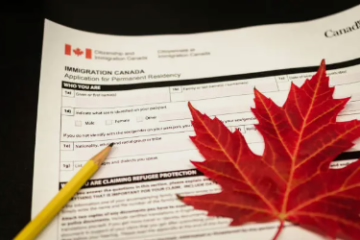In recent years, Canada has become a top destination for international students, offering high-quality education and post-graduation work opportunities. The Post-Graduation Work Permit (PGWP) program has been a significant incentive for students choosing Canada as their study destination, allowing them to gain valuable work experience in the country after completing their studies. In 2025, the Canadian government is set to implement new changes to the PGWP rules, affecting study requirements, work opportunities, and the application process. This article explores these changes in detail, providing insights into what international students can expect in the coming years.
Table of contents
Overview of Canada’s 2025 PGWP Rule Changes
The Canadian government has announced a series of changes to the Post-Graduation Work Permit (PGWP) program set to take effect in 2025. These changes are part of a broader strategy to align the PGWP with the evolving needs of Canada’s labor market and to ensure that international students are well-prepared for the workforce. The new rules aim to streamline the process, making it more accessible and beneficial for graduates while also addressing the demand for skilled workers in various sectors across the country.
One of the significant changes is the extension of the PGWP validity period for certain fields of study. Graduates from programs that align with Canada’s critical skills shortage areas may receive an extension of up to four years, compared to the standard three-year maximum. This change is designed to encourage students to pursue studies in high-demand areas, such as technology, healthcare, and engineering, thereby contributing to the country’s economic growth and innovation.
Additionally, the eligibility criteria for PGWP have been revised to include a wider range of educational institutions. Previously, only graduates from designated learning institutions (DLIs) were eligible for the PGWP. However, starting in 2025, the program will extend eligibility to include graduates from select private institutions that meet specific quality and accreditation standards. This expansion aims to provide more opportunities for international students and diversify the talent pool in Canada.
The application process for the PGWP will also see improvements, with the introduction of a digital platform designed to streamline submissions and reduce processing times. This new system will enable applicants to track the status of their applications in real-time and receive timely updates, enhancing the overall user experience and increasing transparency in the process.
New Study Requirements for International Students
The 2025 changes to the PGWP program also bring new study requirements for international students aiming to qualify for the permit. These modifications are intended to ensure that students are acquiring the skills and knowledge necessary to thrive in Canada’s dynamic job market. One of the key changes is the introduction of mandatory work-integrated learning components for specific programs. Students will need to complete internships, co-op placements, or other forms of practical experience as part of their curriculum to be eligible for the PGWP.
In addition to work-integrated learning, the new rules emphasize the importance of language proficiency. International students will be required to demonstrate a higher level of proficiency in either English or French, depending on the language of instruction at their chosen institution. This change acknowledges the critical role language skills play in successful integration into the Canadian workforce and aims to better prepare graduates for employment opportunities post-graduation.
Furthermore, the Canadian government is placing a greater emphasis on the alignment of study programs with labor market needs. Students enrolling in programs that directly relate to high-demand sectors will be prioritized for PGWP eligibility. This targeted approach seeks to address skill shortages in key industries and ensure that international graduates are well-positioned to contribute to Canada’s economic development.
To assist students in navigating these new requirements, Canadian educational institutions will offer enhanced support services, including career counseling and language training programs. These resources aim to help students make informed decisions about their studies and career paths, ultimately increasing their chances of securing a PGWP and succeeding in the Canadian job market.
Impact on Work Opportunities Post-Graduation
The 2025 PGWP rule changes are expected to have a significant impact on work opportunities for international graduates in Canada. By aligning study programs with labor market demands, the changes aim to create a more seamless transition from education to employment for international students. Graduates from programs in high-demand fields will find themselves in a favorable position, with increased chances of securing employment in their chosen industries.
The extended validity period for PGWPs in critical skills areas will provide graduates with more time to gain valuable work experience and establish themselves in the Canadian job market. This additional time can be crucial for building professional networks, acquiring industry-specific skills, and ultimately enhancing employability. As a result, international graduates may find it easier to transition to permanent residency, as Canadian work experience is a valuable asset in the immigration process.
Moreover, the expansion of PGWP eligibility to include select private institutions will diversify the pool of talent available to Canadian employers. This change is expected to increase competition among graduates, encouraging them to excel in their studies and develop skills that are in high demand. Employers will benefit from access to a broader range of qualified candidates, fostering innovation and growth within their organizations.
While the new requirements may pose challenges for some students, particularly those in programs not directly aligned with high-demand sectors, the overall impact of the 2025 changes is anticipated to be positive. By prioritizing skills development and aligning educational outcomes with labor market needs, Canada aims to create a more robust and adaptable workforce, benefiting both international graduates and the broader economy.
Navigating the 2025 PGWP Application Process
The 2025 changes to the PGWP program also entail a revamped application process, designed to enhance efficiency and transparency. The introduction of a new digital platform will be a key feature, allowing applicants to submit their applications online and track their progress in real-time. This innovation is expected to reduce processing times and improve the overall experience for international graduates seeking to obtain their PGWP.
Applicants will need to familiarize themselves with the new platform and ensure they have all the necessary documentation ready for submission. This includes proof of completion of their study program, language proficiency results, and evidence of any mandatory work-integrated learning components. Educational institutions are expected to provide guidance and support to students throughout this process, helping them gather and submit the required materials accurately and on time.
The Canadian government is also introducing measures to enhance communication with applicants, providing timely updates and clarifications on any issues that may arise during the application process. This increased level of support aims to reduce uncertainty and ensure that applicants are well-informed at every stage of their PGWP application journey.
Overall, navigating the 2025 PGWP application process will require international graduates to be proactive, organized, and informed. By leveraging the resources and support available, students can successfully navigate the new system and secure their post-graduation work permits, paving the way for a successful transition into the Canadian workforce.
As Canada prepares to implement the 2025 PGWP rule changes, international students and graduates must stay informed and adapt to the new requirements. While the changes present new challenges, they also offer opportunities for enhanced career prospects and integration into the Canadian labor market. By aligning educational outcomes with industry needs, Canada continues to position itself as a leading destination for international students seeking quality education and rewarding work experiences. As the landscape evolves, students, educational institutions, and employers must work together to ensure a smooth transition and capitalize on the benefits these changes bring.
Discover more from Pax Law Corporation
Subscribe to get the latest posts sent to your email.



0 Comments